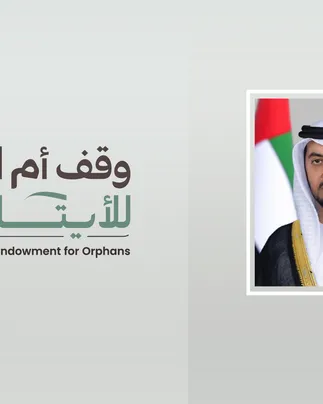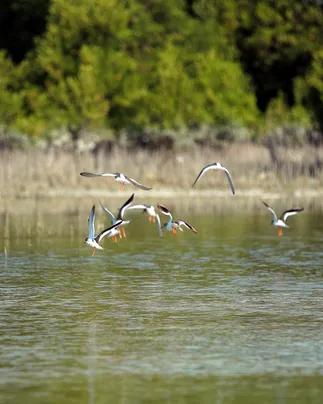His Highness Sheikh Hamdan bin Zayed Al Nahyan, Ruler’s Representative in the Al Dhafra Region, in his capacity as Chairman of the Environment Agency – Abu Dhabi (EAD), has issued Decree No. (6) of 2025 regarding the issuance of a biodiversity policy in Abu Dhabi, in a strategic step that confirms the emirate's unwavering commitment to preserving its natural resources and the sustainability of its ecosystems. The decision coincides with the IUCN World Conservation Congress, which is being held in the emirate until 15 October, reflecting Abu Dhabi’s leading global role in environmental protection.
The decree stipulates that EAD, in coordination with the concerned entities, will follow up on the instruments contained in the policy and implement them according to the stated timeframe. The agency will also oversee the analysis of the impacts resulting from the policy's implementation, utilising systematic and organised procedures that will contribute to the achievement of the policy's objectives.
The policy aims to ensure the sustainability of biodiversity in the emirate and address the major challenges and threats by protecting and restoring natural ecosystems and conserving terrestrial and marine habitats essential for the survival of local plant and animal species. The policy also seeks to strengthen legislative and regulatory frameworks, implement nature-based solutions and raise environmental awareness in the community about the importance of biodiversity and the role of ecosystems in supporting human health, community well-being and resource sustainability in Abu Dhabi.
The agency, in close cooperation with Abu Dhabi Government agencies, a number of private sector institutions, and segments of the local community, developed this policy to ensure it is fully aligned with national policies.
The policy takes into account the current status and challenges facing the emirate's biodiversity sector, including the loss and degradation of natural habitats, climate change and unsustainable resource use, in addition to social and economic factors. It also outlines the measures required to protect marine, coastal and terrestrial ecosystems related to the policy.
Her Excellency Dr Shaikha Salem Al Dhaheri, Secretary General of the Environment Agency – Abu Dhabi, said: “This policy is an important step towards achieving the general framework of the National Biodiversity Strategy 2031. It also strengthens Abu Dhabi’s position as a leading entity in the field of protecting and sustaining ecosystems. The policy represents a strategic tool that aligns with the UAE’s directives and international commitments and contributes to achieving the emirate’s Environmental Centennial 2071 goals by protecting natural habitats, preserving local species and enhancing the sustainability of ecosystems.
“Preserving biodiversity is a fundamental pillar for achieving food and water security, mitigating the effects of climate change and preserving quality of life. Through this policy, we aim to stimulate joint action and integrate efforts among relevant stakeholders to rehabilitate affected habitats, conserve endangered species and enhance the database and scientific knowledge related to local biodiversity, to build a sustainable environmental future.”
Abu Dhabi is home to a diverse array of rich ecosystems, such as plains and sand dunes, coasts and islands, coral reefs, mangrove forests and mountainous areas, which support unique terrestrial and marine species. However, these ecosystems face increasing challenges that require thoughtful and sustainable interventions. Through this policy, a set of measures will be implemented to enhance the resilience of ecosystems, activate partnerships across various sectors and employ modern technologies to support efforts to protect and rehabilitate these ecosystems.










